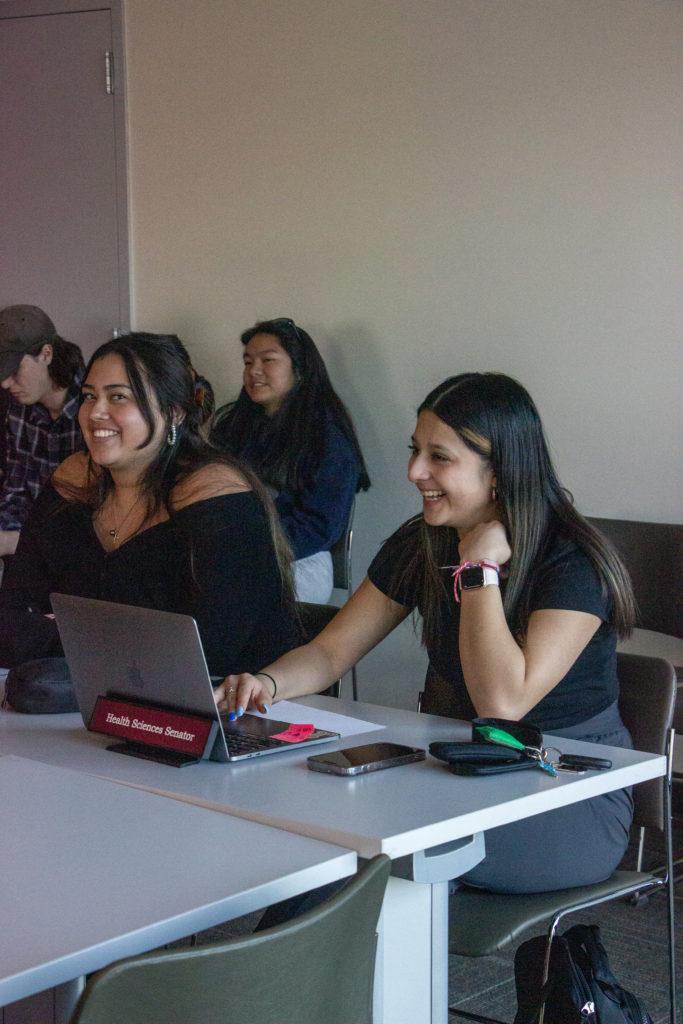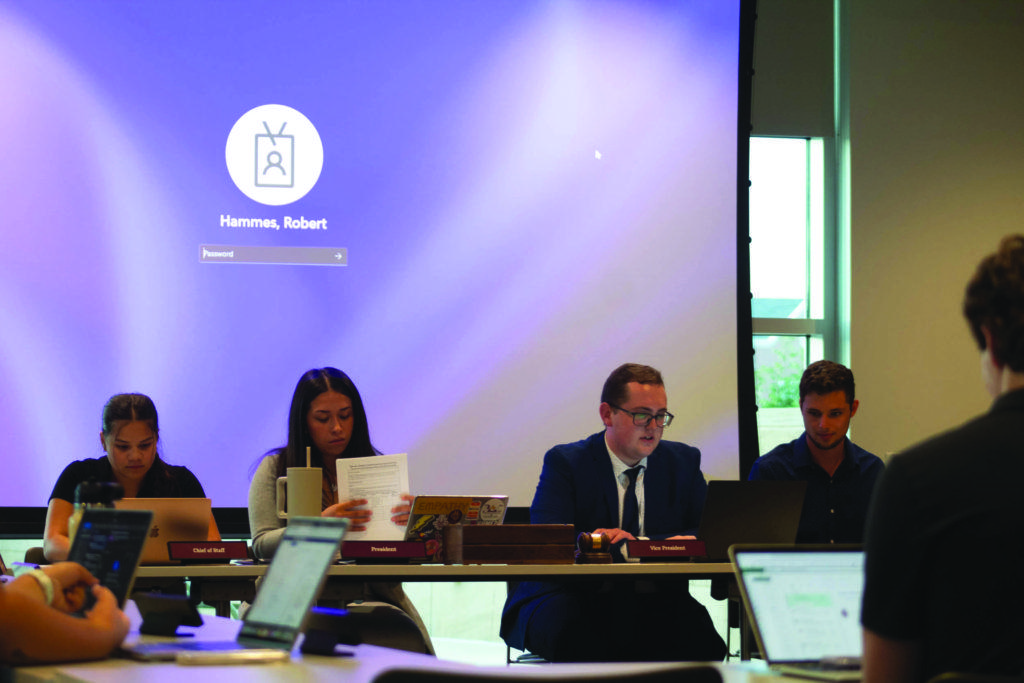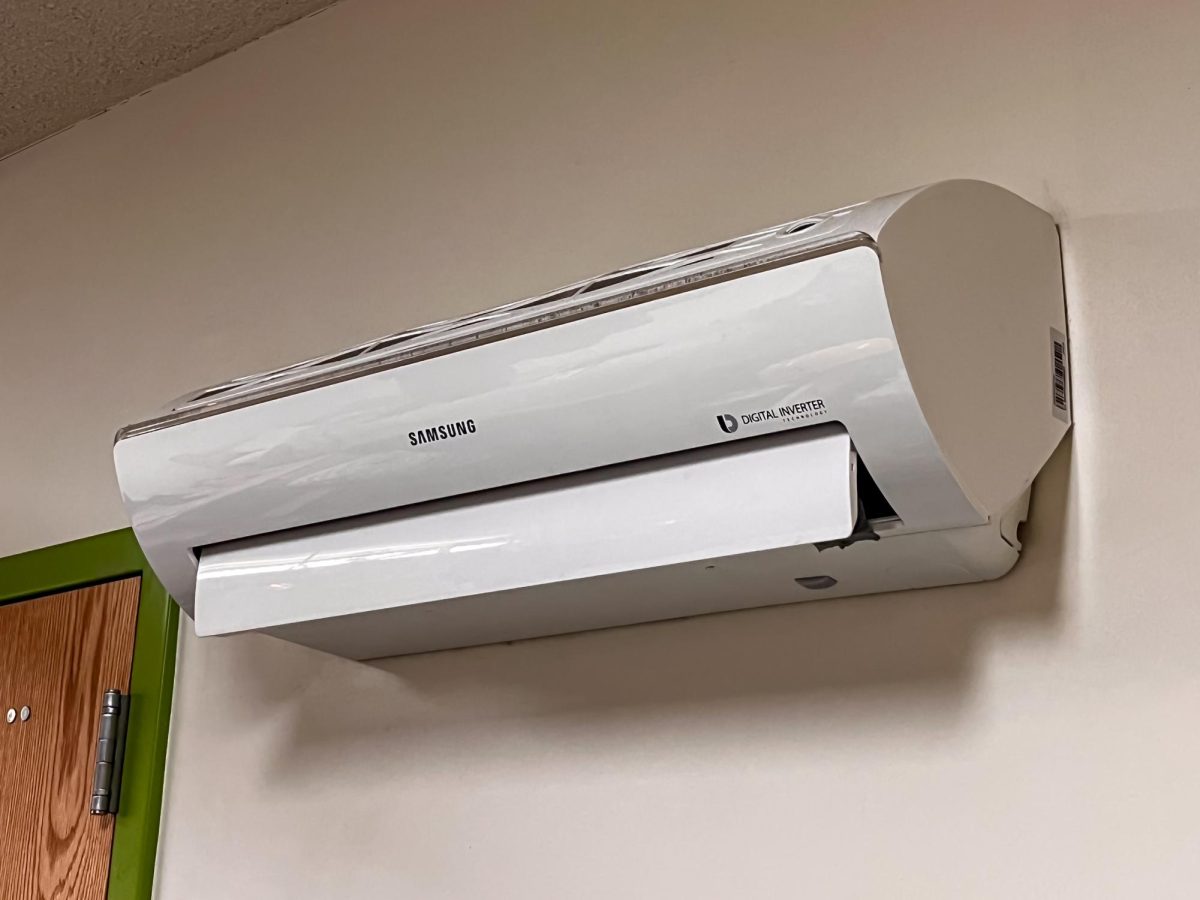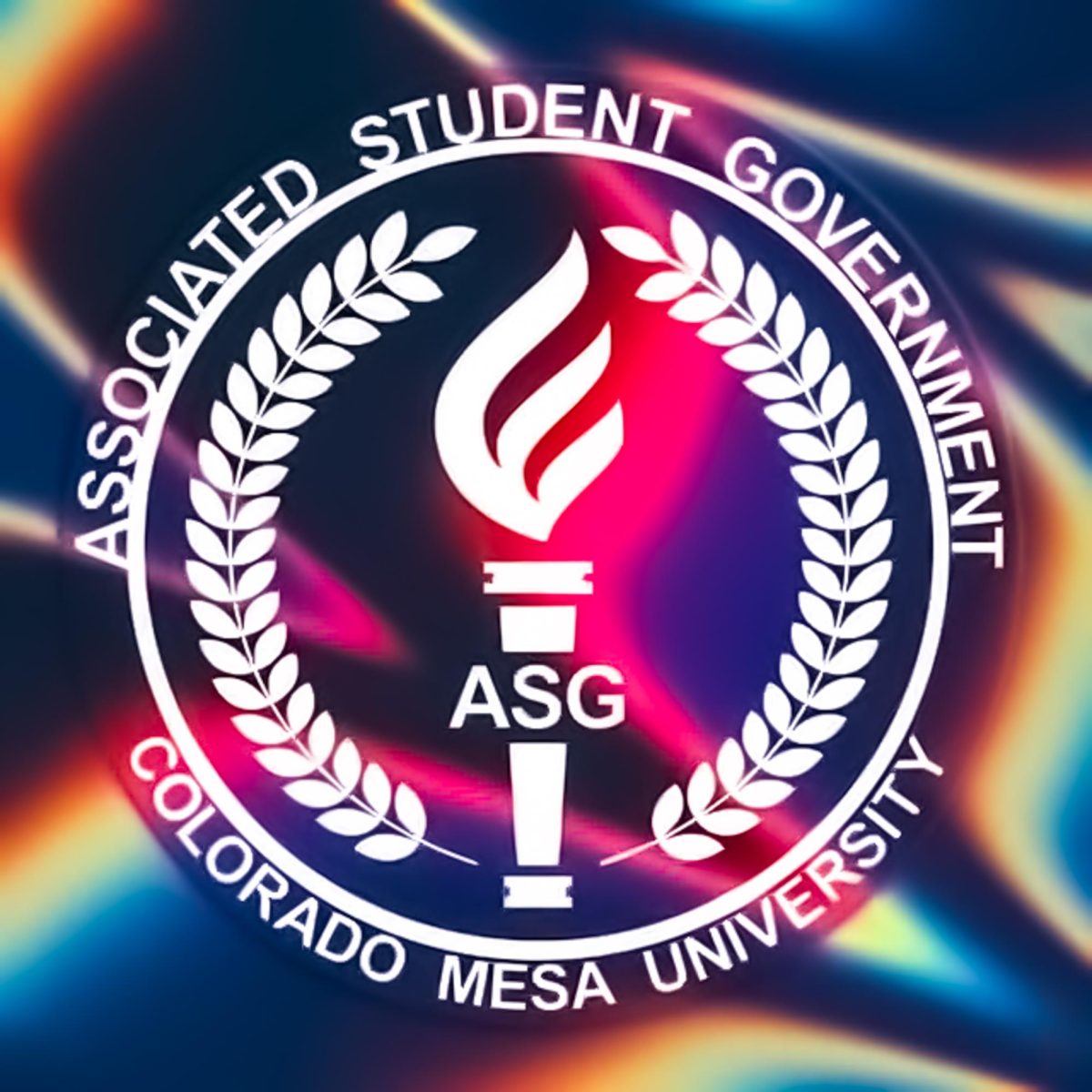In a three and a half hour-long meeting, the Associated Student Government (ASG) debated the alleged unconstitutional conference committee held last week by Senate Leader Sam Gaasch on Nov. 2. Senators Kevin Kahuena, Jeff Vela and Richard Nguyen sponsored a resolution condemning the alleged unconstitutional conference committee and the vote of Gaasch during it. The resolution, with amendments, passed 14-6 with Gaasch’s abstention, after three amendments.
The conference committee in question was in regard to the approximately $70 amendment to ASG 17-16 for the pink safety glasses for the Society of Women Engineers (SWE). The issue was discussed at two separate conference committees: the alleged unconstitutional Nov. 2 committee, in which the amendment was repealed 4-0, and the second “re-do” committee, in which the amendment was also repealed 3-2, with Gaasch casting the tie-breaking vote against the amendment.
“Just for the purpose of consistency, I suppose, we did re-do the committee,” Vice President Gabby Gile said. “It was the same result, just a different group of people.”
SWE did receive the funds for the safety glasses, as President Ben Linzey passed an executive order Nov. 6 to allocate the money, arguing that the order reflected the beliefs of the majority of the Senate.
[media-credit id=10 align=”alignleft” width=”300″] [/media-credit]
[/media-credit]
A conference committee is called to review an amendment added on the floor during an ASG general assembly meeting. The committee is required to meet within the five days after an amendment is approved. The body consists of two non-ASG Fee Allocation Committee members, appointed by FAC Chair Jake Wellborn, two ASG senators, appointed by Gile, and a committee chair. The committee chair is always the Senate leader, who acts as a deciding vote in the case of a tie.
On both conference committees related to this issue, the FAC representatives were also ASG representatives, in accordance with a clause allowing for this, if non-ASG representatives cannot be reached within the time frame. Representatives Josh Stover and Alec Williams could not be reached for this committee.
Many senators did not seem to understand the bylaws surrounding conference committee or the normal procedures, as Gile had to pull up a handout summarizing the rules on the screen and discuss it with senators.
The resolution sponsors, Kahuena, Vela and Nguyen, argued that the first conference committee was unconstitutional since Gile did not appoint the two ASG representatives. Kahuena specifically argued that Gaasch did not uphold her responsibility as a representative of the Senate, the body which elected her, since she voted against an amendment in a conference committee that the Senate majority approved (21-3) during the general assembly.
[media-credit id=10 align=”alignleft” width=”300″] [/media-credit]
[/media-credit]
Despite the heaviness of the allegations brought up against Gaasch, the bill sponsors were not, for the most part, accusatory in the presentation of the resolution. Kahuena began with a nonchalant tone, wishing Gaasch “happy birthday” before beginning the allegations. Kahuena, Vela and Nguyen stated multiple times throughout the night that they did not wish to begin an impeachment process, only to use the resolution as a statement about the position and a way to hold the body accountable.
“This isn’t trying to attack anyone; this isn’t trying to start a huge conflict,” Kahuena said.
Linzey, too, seemed to discourage the possible impeachment of Gaasch, as he ended his report with a reference to last year’s impeachment of former President Josh Dillinger, a process which he said “tore the group apart.”
Many in the Senate as a whole echoed this tone, with some executives and other senators making the case that the alleged unconstitutional conference committee was the result of oversight and convenience, rather than malicious intent.
Senator Shelby Cerise and Director of Internal Affairs Elise Leonard, both representatives on one of the two conference committees, advocated this viewpoint.
Leonard argued that she too knew the ASG bylaws and could have stopped the committee, but those present were acting out of convenience rather than constitutionality. The five-day window for conference committee seemed to add to the urgency for the committee to meet, as well as the fact that the SWE event that the glasses were needed for was happening the following week.
The convenience argument did not placate some senators, who argued for the importance of consistency in ASG’s procedures.
[media-credit id=10 align=”alignright” width=”300″] [/media-credit]
[/media-credit]
“Even convenience has its consequences,” Senator Amber DuBois said.
Throughout the debate, Cerise was one of Gaasch’s strongest supporters, arguing for Gaasch’s character as a senator and in favor of Gaasch’s right to change her vote during conference committee based upon the arguments of FAC representatives. According to referenced statements that Gaasch made before the meeting, Gaasch spoke with approximately eight senators before the conference committee who did not support the amendment.
[media-credit id=10 align=”alignleft” width=”300″] [/media-credit]
[/media-credit]
“I think that everyone in this room could agree there was a mistake made, not just by one person, but there was a mistake made,” Cerise said. “The reason that I urge you all to think about your vote because I want you all to think if Sam [Gaasch] did this because she didn’t do her job or because that person shouldn’t be put in that point of power. I urge you all to really evaluate this situation.”
Cerise considered the alleged unconstitutional conference committee the only mistake made by Gaasch, arguing that making the Senate leader chair of the conference committee asks one person to “wear two hats.” As chair, Gaasch would be the deciding vote, asked to listen to both sides of the argument, but as Senate leader, Gaasch would be a representative of the position of the majority of the Senate.
Senator Jay Shearrow echoed this opinion and was not in favor of the resolution.
“We don’t need to pin this on someone’s personal reputation,” Shearrow said. “We should not be punishing someone for an institutional fault.”
The decision over whether or not to include Gaasch’s name in the resolution dominated a significant portion of the debate and spawned four amendments to the wording of the bill, three of which passed. The amendment process revealed a lack of knowledge among senators about Robert’s Rules of Order, the parliamentary procedure that guides the United States Congress and ASG at Colorado Mesa University as well.
The three successful amendments, proposed by Senators Jake Kernc, Leonard and Vela respectively, removed mention of Gaasch and replaced it with just the title of Senate leader, removed a clause Leonard believed was specifically related to Gaasch and this incident, and then added the clause to the end of the resolution because Vela believed it was general enough.
[media-credit id=10 align=”alignleft” width=”300″] [/media-credit]
[/media-credit]
The failed amendment, proposed by DuBois, would assert that the Senate leader votes in congruence with the majority of the Senate body.
This amendment echoed the earlier sentiment of Kahuena, who when asked by Cerise said he believed the Senate leader should vote in accordance with the Senate.
“It is her responsibility to represent us,” Kahuena said. “Especially in a vote that has been cast to represent 21 yes’s and 3 no’s.”
The amendment failed after senators argued the Senate leader has a responsibility to advocate for both sides of the Senate on a divided issue.
The amendments caused considerable confusion in the Senate, during which short breaks were taken so that senators could come to the computer and type their proposed amendment onto the resolution. Gile spent the second half of the meeting explaining the operating procedure and what was being voted upon.
[media-credit id=10 align=”alignright” width=”300″] [/media-credit]
[/media-credit]
“Do you guys know what we’re voting on right now?” Gile said to senators before the vote on the third amendment.
The final resolution contained no mention of Gaasch and considerably softer language regarding the incident.
ASG also discussed two bills regarding bylaw changes.
The first of these bills removed and added some awards to the Mav Awards, in order to provide more specific criteria for the awards and to make them more prestigious, according to Director of External Affairs Chrystina Meador.
The second bill, sponsored by Kahuena, was an attempt to rectify the conflict which arose from having the Senate leader as the deciding vote on the conference committee. The bill proposed the vice president act as committee chair and the Senate leader pick the two representatives, therefore avoiding the notion that the Senate leader must always vote in support of the Senate. Gile, as a member of the executive branch, could provide a more objective voice in the position of the committee chair.
Both bills were read in their entirety and the first was discussed. Since both bills concern bylaw changes, they must be read at three separate meetings before being voted upon. Discussion regarding Kahuena’s conference committee bill will likely take place at next week’s meeting.












